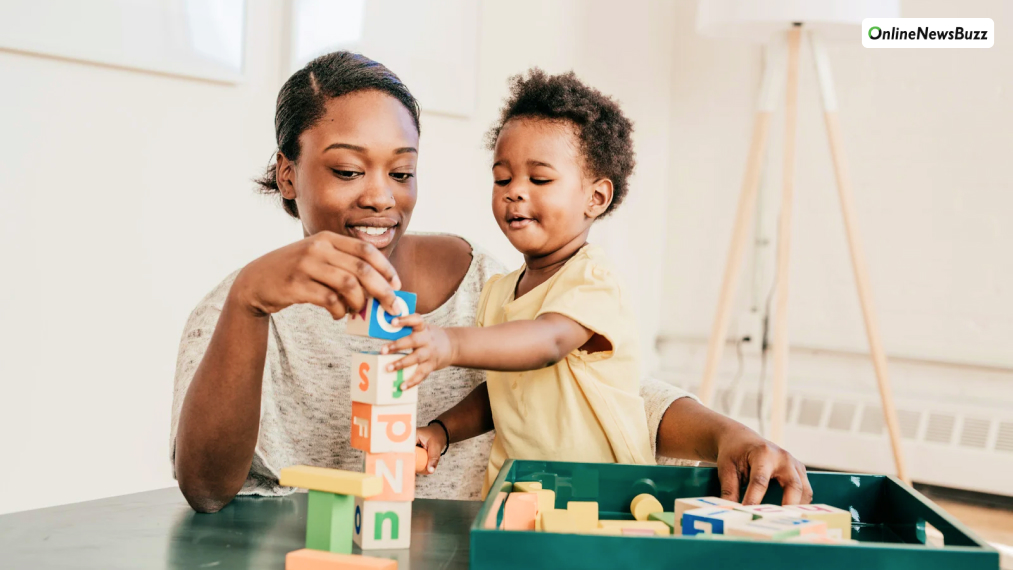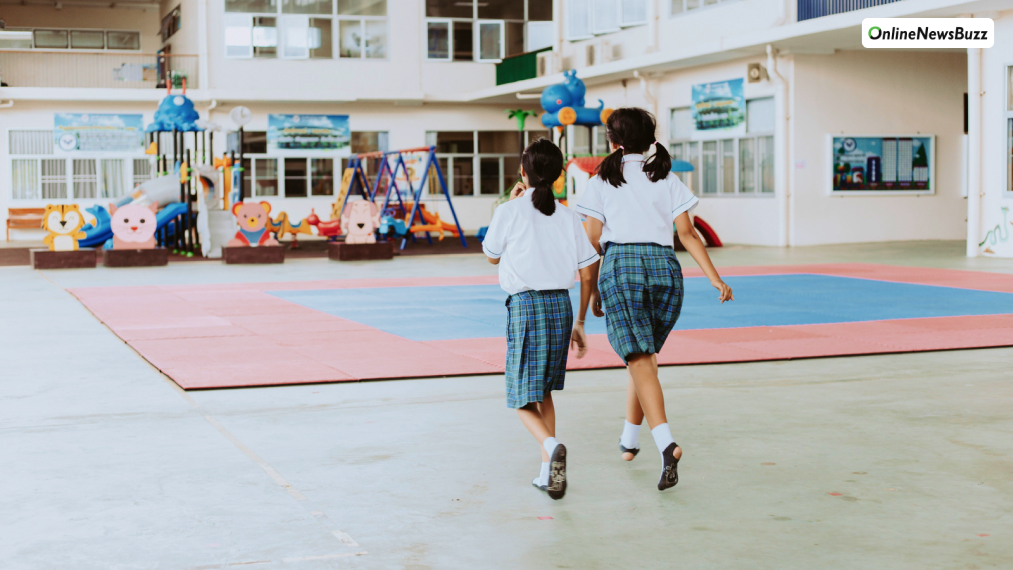
Parenting is one of life’s richest journeys, yet when it involves your child’s education, it often feels like navigating through a maze with new challenges at every turn.
Children grow, learn, and change in amazingly rapid ways from their first day of school into their teenage years.
It is through your involvement as parents and carers that reassurance and guidance shape not only their academic success but also their emotional development and confidence.
From early years to university, this indispensable guide will take you through every phase of school with hands-on advice, expert tips, and real-life strategies to help your child thrive along the way.
Understanding the School Journey
Schooling is not all about grades. It encompasses social skills, emotional intelligence, independence, resilience, friendships, discipline, creativity, and many more. Knowing what to expect at each stage helps you respond to your child’s needs appropriately.
Key Stages of School Life

- Early Years (Age 3-6): play-based learning, emotional development, socializing, and foundational literacy and numeracy.
- Primary School (Age 6–11): Reading, writing, math foundations, curiosity, early friendships, structured routines.
- Middle School (Age 11-14): Building identity, peer pressure, increasing responsibilities due to academics.
- High School (Age 14–18): Exams, planning of the future, independence, ups and downs emotionally, career exploration.
Every stage needs different kinds of support from parents, and this roadmap shows how to give it to them.
Building Strong Foundations: Early School Years

During the earlier school days it is important to create habit for your kid when they are starting school. Here are a few things that you can do.
1. Create Routines
Predictability appeals to children, and the same times each day for rising, mealtimes, playtime, homework, and bedtime increase emotional security, ensuring smooth transitions to school.
2. Encourage Curiosity and Play
Play is powerful. Activities such as puzzles, drawing, storytelling, singing, and imaginative games strengthen creativity and understanding of the world.
3. Focus on Emotional Preparedness
Teach them to:
- Share
- Focus
- Express needs
Directions/Instructions:
- Follow simple directions
- Deal with petty irritations
The state of emotional intelligence sets the pace for future social relationships.
4. Developing Early Learning Skills
- Read with your child every day.
- Count objects.
- Expose them to shapes, colors, and letters.
- These micro-learning moments matter.
Primary School Years: Building Confidence and Skills

When your child is in primary school, it is their main development years and that requires your full support and motivation as parents.
Support Homework, but Don’t Do It For Them
Your task is to guide, not perfect. Give them a quiet place to study, and also help them break tasks into smaller steps.
Encourage Questions
Kids become more critical thinkers when they are comfortable enough to ask “why?” Let them have space to explore ideas, and even make some mistakes.
To promote social skills
Encourage friendships, playdates, and group activities. Through playing socially, children learn teamwork, empathy, and how to resolve conflicts.
Balance Screen Time
Introduce healthy limits by using educational apps, but make sure they get physical play and outdoor activities daily.
Stay Connected With the Teacher
Attend parent – teacher meetings regularly. Check their school diary regularly and keep the channel of communication open. Early intervention prevents small problems from becoming big ones.
The Pre-Teen and Middle School Stage: Guidance Through Change

This is the period in which hormonal changes, awareness of self, emotional highs and lows, and the start of peer pressure occur.
Encourage Honesty in Conversations
Provide a safe area to discuss issues like
- Friendships
- Bullying
It includes:
- Body image
- Social media
The following can be considered as examples of stressors:
- School stress
- One should listen and not judge
Encourage Responsibility
Give them age-appropriate chores, such as:
- Packing their school bag
- Managing pocket money
- Homework deadline tracking
These habits build independence.
Be Aware of Academic Pressure
Middle school does get competitive. Help your child set realistic goals and celebrate effort, not just results.
Monitor Their Online World
Teach them about digital safety, cyberbullying, privacy, and healthy boundaries with technology.
High School Years: Preparing for the Future

It is important that you help and support your child even more when they are in high school, that is when they start paving the way for their future and would require all the help they could get.
Help Them Plan Their Path
Direct them towards fields of study in which their strengths and interests will serve them best. Encourage them to research careers, internships, and college/university options.
Teach Time Management
- High school students balance
- Studies
- Extracurriculars
- Social life
- Part-time jobs in some regions
- Teach them to plan using calendars, apps, or planners.
- It promotes healthy study habits.
- Short study sessions with breaks
- Active recall and note-taking techniques
- Asking for help from the teachers early
Focus on Mental Health
Teenagers undergo a lot of pressure by academics
- Social expectations
- Anxiety
- Identity confusion
Support Their Independence
Let them make decisions-even mistakes. Independence gives them confidence to navigate adulthood.
Supporting Your Child’s Emotional Development

It is very important that you support your kid whenever they need you. But that doesn’t mean you will go ahead and solve things for them. Instead this is what you need to do.
Teach problem solving
Rather than jumping in to fix everything, ask:
- “What do you think you should do?”
- “What are your options?”
- It builds resilience.
Acknowledge their feelings
Validate feelings of fear, sadness, frustration, and excitement. Emotional validation builds trust.
Build Self-Esteem
Praise effort, perseverance, curiosity, and kindness more than achievements.
Encourage Friendships with Positive Peers
Wholesome social circles shape character and attitude.
Communicating Effectively with Teachers and Schools

It is very important for parents to be in constant communication with their children’s teachers and school.
Attend all events at school
Parent–teacher conferences, sports days, assemblies, being present for your kid counts.
Regular Check-Ins
Ask teachers about:
- Class participation
- Behaviour
- Strengths and weaknesses Any problems you need to take up at home
Collaborate, Not Confront
Be open, polite, and solution-oriented. When teachers and parents work as a team, your child benefits.
Building Healthy School-Life Balance

It is very important that your child has a proper and more importantly a healthy school-life balance. How to build a health school – life balance for your child.
Encourage Outdoor Play
Sports contribute to physical and mental health. Even light activities, such as bicycling or jogging, help reduce stress.
Keep Sleep a Priority
Adequate sleep is also important for children and adolescents to learn, pay attention, and regulate their emotions. Avoid Overscheduling Extracurriculars are great, but not at the expense of sleep, creativity, or even free time.
Make it Family Time
Some of the contributors to family bonding include dinner time, weekend outings, and board games.
Preparing for Key Transitions

Changes can be stressful: a different school, different teachers, or routines.
Before a Transition
- Visiting the new school
- Discuss expectations
- Let them ask questions
- When possible, meet the teachers
- Practice the new route
During the Transition
- Watch for signs of stress
- They are reassuring.
- Keep routine
After the Transition
- Celebrate small victories
- Encourage reflection.
- Gradually increasing independence
When to Seek Additional Help?

You may need outside assistance if your child:
- Has rapid changes in mood
- Is not doing well in school, even though they study
- Acts as though they are being bullied
- Withdraws or isolates themselves from social interactions
Has difficulty with concentration, sleeping, or eating. They show a fear of going to school. Therapists, counselors, and learning specialists can be quite helpful.
Nurturing the Future
The future of parenting through school years is not about perfection; it’s about presence, patience, and partnership. Every child learns differently, and every child grows at their own pace.
Your job is to guide them, encourage them, support them, and believe in them, even on those days when they don’t believe in themselves.
You can help your child not only get through the school years but thrive through them with understanding, structure, consistency, and open communication.




























